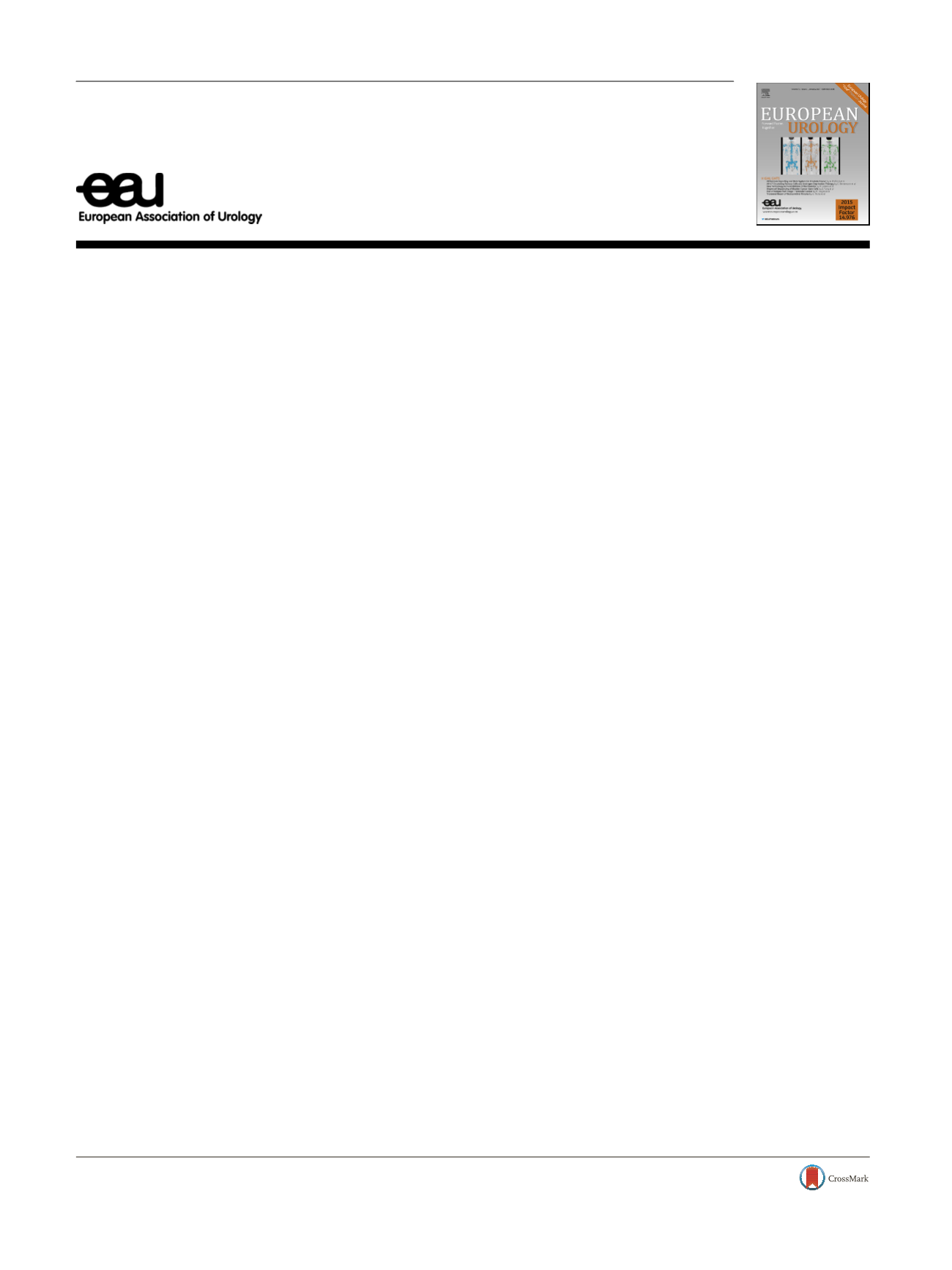

Letter to the Editor
Re: Jean-Pierre Droz, Gilles Albrand, Silke Gillessen, et al.
Management of Prostate Cancer in Elderly Patients:
Recommendations of a Task Force of the International
Society of Geriatric Oncology. Eur Urol. In press.
http://dx.doi.org/10.1016/j.eururo.2016.12.025Health Assessment of the Elderly is a ‘‘Relatively Young’’
Issue
We would like to congratulate Droz et al
[1]on their review
updating the 2014 International Society of Geriatric
Oncology guidelines on prostate cancer in men aged
>
70 yr. The authors analysed recent pertinent articles
with a focus on the importance of assessing overall health
status, comorbidities, and cognitive functions in personalis-
ing the management of prostate cancer in the elderly.
Interestingly, they introduced a more accurate preoperative
evaluation of the health status of these patients, and
stressed the importance of screening for cognitive function.
They confirmed the role of the Comprehensive Geriatric
Assessment in evaluating health status. It has been
demonstrated that this tool (including data on demograph-
ic, social, functional, nutritional, cognitive and mental
health status, presence of geriatric syndromes, and comor-
bidities) is very accurate in predicting both survival and
complications after various types of therapy, and may
consequently be very useful in differentiating ‘‘fit’’ and
‘‘frail’’ elderly patients, quantifying the balance between the
risks and benefits of each treatment.
As the above authors concluded, individual elderly
patients should be managed according to their health
status, and not according to their age.
Health assessment of the elderly in urology is a
‘‘relatively young’’ problem and until now there have been
few good studies in the literature. Reported analyses are
often limited to physical parameters and psychosocial
aspects, and only a few reports contain analyses of other
biochemical parameters, such as albumin, haemoglobin,
and creatinine values
[2]. Despite the decision of the task
force to screen for malnutrition using only weight loss
during the last 3 mo, in our opinion these biochemical
parameters are essential in multifactorial analysis. Some
studies focusing on general surgery have found a correlation
between low albumin levels and postoperative complica-
tions, demonstrating that albumin is a marker of frailty
[3,4]. The reasons for this are related not only to nutritional
status but also to the relationship between low albumin and
general inflammation or stress, and albumin may be an
indicator of a patient’s vulnerability
[5,6].
To confirm the negative impact of a low level of albumin
on health status, we would like to report results from a
prospective study by our department to evaluate the impact
of frailty on postoperative complications (unpublished
data). We analysed data for 78 elderly patients (
>
75 yr)
undergoing endoscopic or surgical urology procedures, and
found a significant correlation (
p
<
0.05) between low
albumin (dichotomization threshold 37 g/l) and major 30-d
postoperative complications (Clavien-Dindo grade 2).
We therefore believe that the inclusion of laboratory
values such as albumin, which may help to predict poor
outcomes, could provide essential extra information
regarding the health status of patients.
In conclusion, we very much hope that these biochemical
parameters will be included in all future prospective studies
on this issue to obtain a more complete picture of frailty in
elderly patients.
Conflicts of interest:
The authors have nothing to disclose.
References
[1] Droz J-P, Albrand G, Gillessen S, et al. Management of prostate
cancer in elderly patients: recommendations of a task force of the
International Society of Geriatric Oncology. Eur Urol. In press.
http://dx.doi.org/10.1016/j.eururo.2016.12.025.[2]
Makary MA, Segev DL, Pronovost PJ, et al. Frailty as a predictor of surgical outcomes in older patients. J Am Coll Surg 2010;210: 901–8.[3] Mogal H, Vermilion SA, Dodson R, et al. Modified frailty index
predicts morbidity and mortality after pancreaticoduodenectomy.
Ann Surg Oncol. In press.
http://dx.doi.org/10.1245/s10434-016- 5715-0.[4]
Chang CC, Hsu CY, Chang TY, et al. Association between low-grade albuminuria and frailty among community-dwelling middle-aged and older people: a cross-sectional analysis from I-Lan Longitudinal Aging Study. Sci Rep 2016;6:1–9.[5]
Gibbs J, Cull W, Henderson W, Daley J, Hur K, Khuri SF. Preoperative serum albumin level as a predictor of operative mortality and E U R O P E A N U R O L O G Y 7 1 ( 2 0 1 7 ) e 1 5 0 – e 1 5 1available at
www.scienced irect.comjournal homepage:
www.europeanurology.comDOI of original article:
http://dx.doi.org/10.1016/j.eururo.2016.12.025.
http://dx.doi.org/10.1016/j.eururo.2017.01.0500302-2838/
#
2017 European Association of Urology. Published by Elsevier B.V. All rights reserved.
















